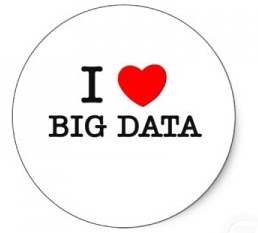What is Big Data?
Everything we do, using Facebook,
watching movies on YouTube or Netflix, Chatting on Skype, Talking on Mobile,
shopping online or off-line or eating at restaurant generates data at an
unbelievable rate. A multitude of sensors, cameras, smartphones, laptops
tablets are fueling
this unprecedented rate of data generation. This rate of
data being generated every minute has been previously unseen. These data flows can
be of thousands of gigabytes, and because of the sheer size of such data, it is
called the BIG DATA. In the digital
world we are leaving a trail of data when we search, browse, buy, comment,
like, share, blog, watch. This trail of data creates a digital foot print of each
of us. A lot can be derived about us from this data trail – from the car we
drive to whom we like to when we wake up in the morning.
Why is it Important?
This data has opened a window
into our world. There is more and more information available about us. Google has been collecting data on our search
behavior. Google uses this data to provide relevant search results and
advertisements. Similarly Facebook collects data on all the things we do (like,
share or comment). It uses this data to assess the strength of the relationship
with our Facebook friends. This then determines what updates appear on our
page. The size of the data provides
unlimited ways in which this data can be used. However, we may feel a bit
concerned about the personal privacy, but the utility of data is tremendous.
Government and companies can benefit
by using this data in variety of ways to improve efficiency and productivity.
For example let’s say there is lot of Twitter feed about a new product. A firm
can analyze the data of these feeds and see what is the response, who is
driving the response, who are the early adopters, who are excited or not so
excited about this product, what kind of networks are being formed. Analyzing this
data can provide useful insights and help developed new and effective solutions.
How it is being used?
Big data offers huge
opportunities, for instance, in healthcare. Analyzing data about patient
history, his lifestyle, health history of his or her family and close relatives
can provide useful information about what health issues can arise in future. At
a macro level it can be used to analyze health issues of large populations and
government agencies can use big data to intervene and understand the issues
better.
Another example is Netflix; it
has been collecting big data on consumer movie viewing habits. It has used this
big data to refine it movie recommendation algorithm. This algorithm can very
accurately predict if we would like a movie or not based on our past viewing
preferences.
It is clear and evident that big
data is going to change our future and many more ways than we can think now. For
starters we will use data from our Blog post (using Google analytics) to
analyze & improve our blog. Watch this space for more....


